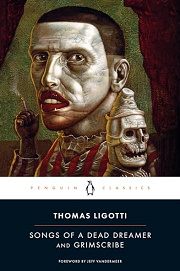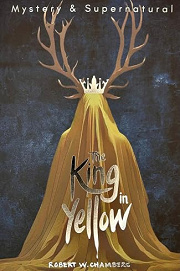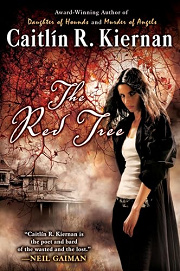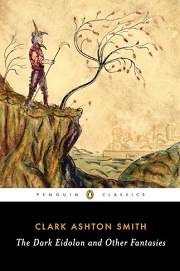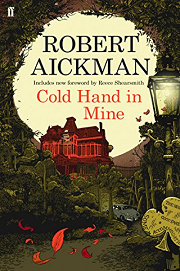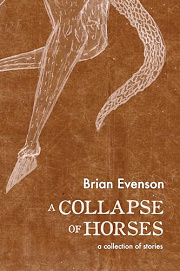Share your thoughts in a quick Shelf Talk!
Songs of a Dead Dreamer by Thomas Ligotti
Walk the shadowed borderlands where dreams breed dread and the familiar turns unhuman. With exquisite, unsettling precision, Songs of a Dead Dreamer distills horror to a hush—then lets it seep under your skin.
Have you read this book? Share what you liked (or didn’t), and we’ll use your answers to recommend your next favorite read!
Love Songs of a Dead Dreamer but not sure what to read next?
These picks are popular with readers who enjoyed this book. Complete a quick Shelf Talk to get recommendations made just for you! Warning: possible spoilers for Songs of a Dead Dreamer below.
In Songs of a Dead Dreamer, did you enjoy ...
... the dreamlike, dislocating menace of 'Dr. Voke and Mr. Veech' and the citywide masque in 'The Greater Festival of Masks'?
The King in Yellow by Robert W. Chambers
If the vertiginous carnival of reality you loved in Songs of a Dead Dreamer—from the puppet-master dread of “Dr. Voke and Mr. Veech” to the masked, ritualized cityscape of “The Greater Festival of Masks”—is your sweet spot, you’ll thrill (and blanch) at the cursed play threading through The King in Yellow. Chambers’ tales don’t explain so much as whisper from behind a torn backdrop, letting stage-sets peel away to reveal an alien script that contaminates anyone who reads it. You’ll get that same sensation of a world slightly tilted off its axle, where a page, a party, or a play can open into abyssal pageantry.
... bleak metaphysical dread and anti-humanist rumination, as in 'The Frolic' and 'Notes on the Writing of Horror'?
The Red Tree by Caitlín R. Kiernan
If what hooked you was the cold philosophical chill—the way “The Frolic” turns a family tragedy into a glimpse of something inhuman, and “Notes on the Writing of Horror” folds craft into cosmic futility—then The Red Tree will feel like a descent you can’t (and don’t want to) stop. Kiernan’s narrator holes up with a manuscript and a tree that may be a portal, a symbol, or a joke the universe is telling. Like Ligotti, Kiernan blurs diary, scholarship, and hallucination into a sustained argument that meaning is a trap and curiosity a blade—only here you’re the one holding it to your own throat.
... ornate, decadent prose that makes rot and doom strangely sumptuous, like the luxuriant corruption in 'Les Fleurs'?
The Dark Eidolon and Other Fantasies by Clark Ashton Smith
If the baroque sentences and perfumed decay of “Les Fleurs” delighted you, Smith’s The Dark Eidolon and Other Fantasies is a treasure-house of jeweled ruin. His diction glitters even as it describes charnel vaults, sorcerous vendettas, and kingdoms sliding into oblivion. You’ll recognize the pleasure of language that luxuriates in corruption—the same aesthetic intoxication Ligotti uses to make horror feel ceremonial—here elevated into lush, intoxicating spells that make annihilation sound almost desirable.
... self-contained, unnerving short pieces that refuse tidy answers, like the sealed-off unease of 'The Chymist'?
Cold Hand in Mine by Robert Aickman
If you prized the compact, trapdoor structure of stories like “The Chymist”—where a confession becomes a corridor and every corridor ends in a locked room—Aickman’s Cold Hand in Mine perfects that gently inexorable slide into the inexplicable. Each “strange story” closes just as the larger shape of the nightmare comes into view, leaving you with the same lingering aftertaste Ligotti favors: dread without disclosure, implication over explanation.
... intimate, mind-sick narrations and unraveling perception, echoing the predatory monologue of 'The Chymist' and the domestic terror of 'The Frolic'?
A Collapse of Horses by Brian Evenson
If the skin-crawling interiority drew you in—the way “The Chymist” lets you inhabit a predator’s logic, or how “The Frolic” turns a home into an existential trap—Evenson’s A Collapse of Horses is a clinic in controlled derangement. His narrators miscount rooms, mistrust their own bodies, and misconstrue mercy; you’ll feel that same tightening loop of thought where reality narrows to a single, terrible conclusion and the page itself starts to lie to you.
Unlock your personalized book recommendations! Just take a quick Shelf Talk for Songs of a Dead Dreamer by Thomas Ligotti. It’s only a few questions and takes less than a minute.
